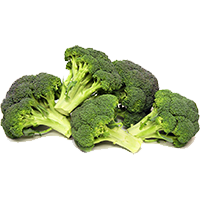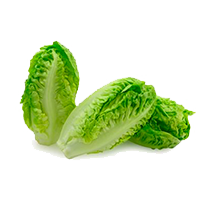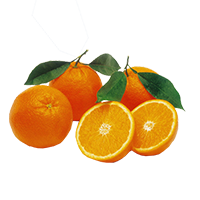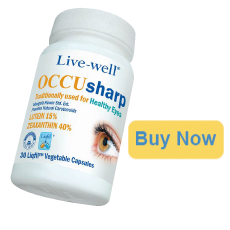Lutein and Zeaxanthin
LUTEIN AND ZEAXANTHIN IS IMPORTANT

Lutein and Zeaxanthin are carotenoid nutrients found in dark green, leafy vegetables like spinach, as well as in other foods such as corn and egg yolk. Of the 20 or so carotenoids detected in our blood, only Lutein and Zeaxanthin are used by the eyes. They are found in all parts of the eye, but occur in concentrations nearly 1000 times greater in the macula section of the retina compared to any other tissues in the body. Lutein and Zeaxanthin give the macula its striking yellow colour and are often referred to as the “macular pigments”. It is found that Zeaxanthin is highly concentrated in the macula while Lutein is more prominent at the edges around the retina.
Concentrated in the lenses, retina and macula, both Lutein and Zeaxanthin provide antioxidant protection to the eyes against:
- Ultraviolet (UV) light from sun rays
- Harmful blue light from computer and TV screens
Prolonged exposure to UV rays and harmful blue light throughout the ageing process may cause excessive free radical damage to our eyes and lead to blurry images, eye fatigue, poor night vision and reading difficulties. This free radical damage can eventually lead to common eye disorders such as cataract and the more devastating macular degeneration.

LUTEIN & ZEAXANTHIN REDUCE RISK OF MACULAR DEGENERATION & CATARACT

Daily supplementation with Lutein and Zeaxanthin has been shown to increase the density of these 2 carotenoids in the eye and help prevent and even partially reverse some of the age-related disorders such as macular degeneration and cataract. Increased concentration of Lutein and Zeaxanthin in the lens, retina and macula also lead to healthier eyesight and sharper vision.
A number of studies support the role of Lutein and Zeaxanthin in reducing the risk of age-related macular degeneration (AMD) and cataract. Results from the dietary study conducted by the Third National Examination Survey (NHANES III) have suggested a minimum of 6-10mg per day of Lutein and Zeaxanthin to reduce the risk of AMD. Similar results were found in two studies published in Investigative Ophthalmology and Visual Science. They showed that eyes with greater levels of macular pigments were less likely to have or develop AMD.
In addition, recent studies published in Archives of Ophthalmology have found that diets rich in Lutein and Zeaxanthin are moderately associated with decreased prevalence of nuclear cataract in older women.
WHY THE NEED FOR LUTEIN & ZEAXANTHIN SUPPLEMENTATION?

Unfortunately our bodies cannot manufacture Lutein and Zeaxanthin. To add to that, the constant bombardment of free radicals to our eyes over the years reduces the concentration of Lutein and Zeaxanthin in our eyes. Thus, we need to obtain both Lutein and Zeaxanthin from our diet or via supplements.
Below are the total amounts of Lutein and Zeaxanthin found in some common fruits and vegetables:-
| Food | Serving | mg | Food | Serving | mg |
|---|---|---|---|---|---|
| Spinach (raw) | 1 cup | 3.8 | Broccoli (cooked) | 1 cup | 1.6 |
| Pumpkin (cooked) | 1 cup | 2.4 | Romaine lettuce (raw) | 1 cup | 1.3 |
| Corn (cooked) | 1 cup | 2.2 | Carrot (cooked) | 1 cup | 1.1 |
| Green peas (canned) | 1 cup | 2.2 | Orange | 1 (medium) | 0.2 |
How much would you have to eat per day…
| Broccoli (cooked) | Romaine lettuce (raw) | Oranges | Eggs |
 |
 |
 |
 |
| 7.5 cups/day | 9 cups/day | 60 whole/day | 80 whole/day |
Therefore, consuming adequate amounts of Lutein and especially Zeaxanthin through diet alone is difficult. You may want to consider adding on nutritional supplements to obtain enough Lutein and Zeaxanthin.
» view references References : » hide references
1. U.S. Department of Agriculture, Agricultural Research Service. USDA National Nutrient Database for Standard Reference
2. Julie A. Mares-Perlman, Alicia I. Fisher, Ronald Klein, Mari Palta, Gladys Block, Amy E. Millen and Jacqueline D. Wright, “Lutein and Zeaxanthin in the Diet and Serum and Their Relation to age-related Maculopathy in the Third National Health and Nutrition Examination Survey,” American Journal of Epidemiology 153 (2001): 424-432, accessed July 28, 2014.
3. Beatty S., Murray IJ, Henson DB, Carden D, Koh H, Boulton ME. “Macular Pigment and Risk for Age-related Macular Degeneration in Subjects from a Northern European population,” Investigative Ophthalmology and Visual Science 42(2001): 439-46, accessed July 28, 2014.
4. Bone RA1, Landrum JT, Mayne ST, Gomez CM, Tibor SE and Twaroska EE. “Macular Pigment in Donor Eyes with and without AMD: a Case-control Study,” Investigative Ophthalmology and Visual Science. 42(2001):235-40, accessed July 28, 2014.
5. Suzen M. Moeller, Rick Voland, Lesley Tinker, Barbara A. Blodi, Michael L. Klein, Karen M. Gehrs, Elizabeth J. Johnson, D. Max Snodderly, Robert B. Wallace, Richard J. Chappell, Niyati Parekh, Cheryl Ritenbaugh, Julie A. Mares, CAREDS Study Group, “Associations between Age-related Nuclear Cataract and Lutein and Zeaxanthin in the Diet and Serum in the Carotenoids in the Age-Related Eye Disease Study (CAREDS), an Ancillary Study of the Women’s Health Initiative,” Archives of Ophthalmology 126 (2008):354-364, accessed July 28, 2014, doi: 10.1001/archopht.126.3.354


